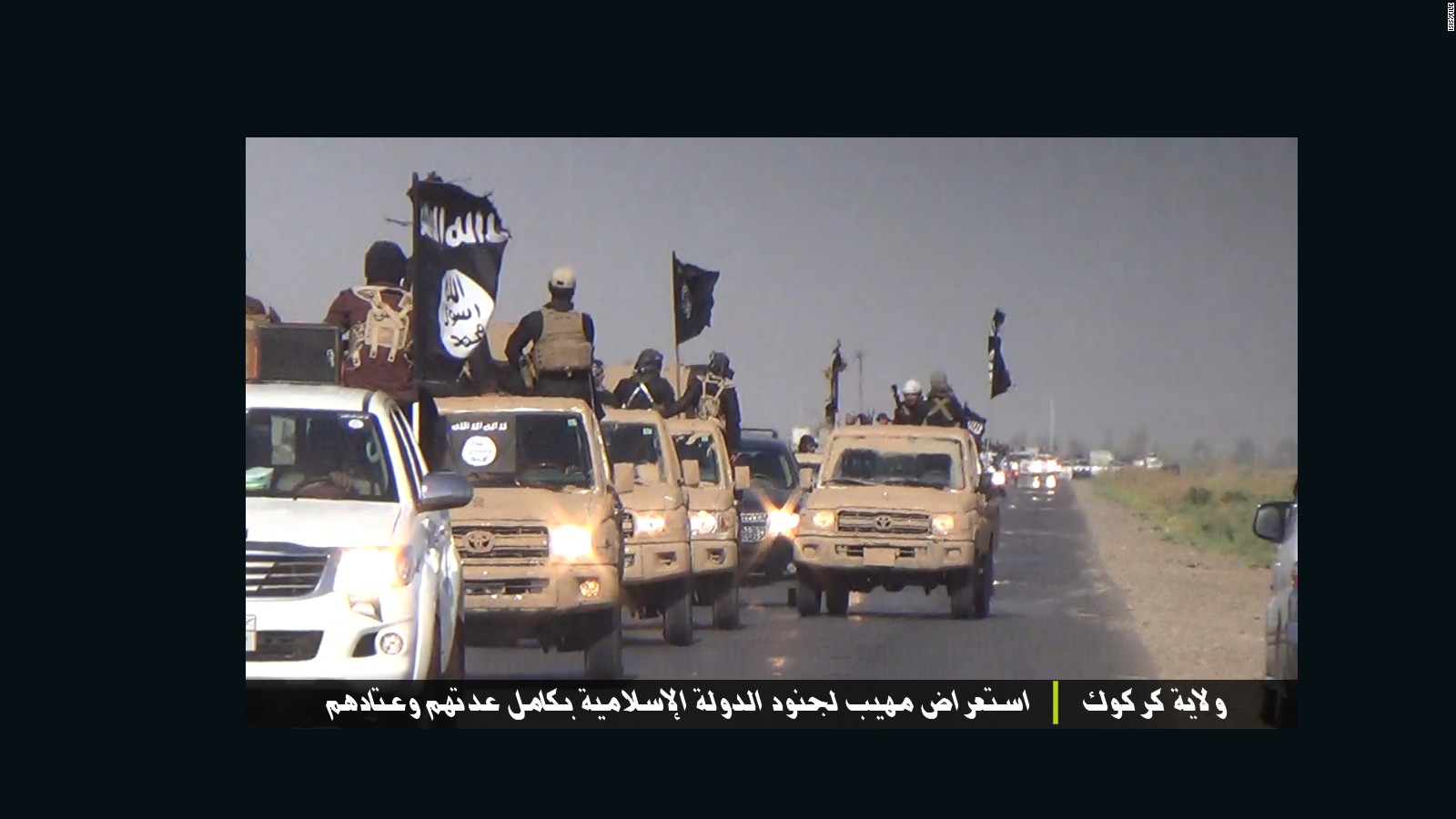What is ISIS' appeal for young people?

ISIS targeting children through social media 02:03
Story highlights
- ISIS has "an extremely sophisticated propaganda recruitment machinery," analyst says
- It's particularly focusing efforts on luring young women to its territory
- Western governments are scrambling to try to combat ISIS' recruitment drive
(CNN)The case of three teenage British girls,
who are believed to have traveled to Syria to join ISIS, has refocused
attention on the Islamic extremist group's appeal to young people.
Children
and young people feature in the terrorist group's propaganda, including
a recent video showing boys in camouflage and ISIS bandanas learning
hand-to-hand combat. The militants call them their "Cubs of the
Caliphate."
Experts say ISIS has
especially ramped up its efforts to lure young women -- seen as
potential brides for its fighters -- into the territory under its brutal
control in Syria and Iraq.
But that still leaves the question of why its recruitment drive appears to be proving so successful.

ISIS recruiting kids to be 'cubs of the caliphate' 02:38

Missing teenage girls believed to be in Syria 02:00
It runs a powerful propaganda machine on social media
"There's
no question what we're combating with ISIL's propaganda machine is
something we have not seen before," U.S. State Department spokeswoman
Jen Psaki told CNN. "It's something we need to do a lot more work on. We
are seeing 90,000, I think, tweets a day that we're combating."
The militants have repeatedly promoted videos using high-level
production techniques to celebrate their brutality. A short mash-up clip
in September played like a trailer for an action movie, with slow-motion explosions and flames engulfing American troops.
UK
surveillance chief Robert Hannigan has said ISIS and other extremist
groups use platforms like Twitter, Facebook and WhatsApp to reach their
target audience in a language it understands. Their methods include
exploiting popular hashtags to disseminate their message, he said.
ISIS also use its Western recruits to promote the cause to other people like them back home.
And the extremist group is putting a particular focus on girls, analysts say.
"We're
seeing young women from across Western countries both expressing their
support for and migrating to Syria now in totally unprecedented
numbers," said Sasha Havlicek, chief executive of the Institute for
Strategic Dialogue. "And I would say this is the result really of an
extremely sophisticated propaganda recruitment machinery that's
targeting young women very specifically."
It promises the good life
Analysts
say that ISIS can appeal to young people's religious idealism and to a
desire to escape the frustrations of life in the West.
"ISIS
provides a utopian political project, the so-called caliphate, the
centralized Islamic rule," Gerges said. "ISIS provides these deluded
young men and women with an adventurous trip."
As
a reward for allegiance, ISIS loyalists receive gifts from Allah
including "a house with free electricity and water provided to you due
to the Khilafah (the caliphate or state) and no rent included,"
according to Aqsa Mahmood, a British teenager who left Scotland to join ISIS in 2013.
"Sounds
great, right?" writes Mahmood, who now appears to blog about life under
ISIS rule and is believed to have communicated with one of the three
British girls who recently left for Syria.
Mahmood
offers assurances to women who might be worried about roughing it: "You
can find shampoos, soaps and other female necessities here, so do not
stress if you think you will be experiencing some cavewoman life here."
Western officials, though, say that ISIS is pushing a false narrative of what it's really like in its territory.
People
who heed its call "erroneously believe they are going out to help
people," said Yasmin Qureshi, a British lawmaker. "And they don't think
ISIS is doing anything wrong because they think ISIS is helping people
in their sort of warped thinking."
It has a diffuse but efficient recruiting network
"It
took so little time for these three young, innocent, vulnerable girls
to from the heart of London to the heart of Turkey -- and probably they
are in areas controlled either by ISIS or other militant groups," said
Gerges, referring to the British teenagers.
He
stressed "the important presence of a person who basically serves as a
middleman or middlewoman between young men and women in the West and
ISIS militants in Iraq and Syria."
U.S. investigators studied the case of three teenage Colorado girls who tried to join ISIS last year to learn more about how the militant group recruits young people in the West.
The
FBI found examples of Westerners already in the ISIS fold who were
communicating directly with new recruits via social media.
Believed
to be operating from Turkey, Syria and Iraq, the online recruiters
helped provide how-to guides for Westerners who are inclined to travel
and join the ISIS fight, officials said.
But
even after identifying them, officials couldn't see a clear path to
arresting them. Most are thought to be out of reach of U.S. law
enforcement.
It's outwitting Western governments' efforts
Social
media services may have been largely invented in the West, but ISIS is
outflanking governments in how it uses the platforms.
"We
are way behind. They are far superior and advanced than we are when it
comes to new media technologies," Maajid Nawaz, a former jihadi and
author of "Radical: My Journey out of Islamist Extremism," told CNN last
year.
British Prime Minister David
Cameron has said the case of the three British girls highlights the need
to fight ISIS on multiple fronts.
"It
needs every school, every university, every college, every community to
recognize they have a role to play, we all have a role to play in
stopping people from having their minds poisoned by this appalling death
cult," he said.
The U.S. government is trying to step up its efforts to counter ISIS propaganda by beefing up a small State Department agency to make it the heart of the fight against the militants' messaging.
"We're
seeing their approaches continue to evolve," Psaki told CNN. "We need
to continue to make sure ours are evolving and we're combating it in the
most strategic way and using every interagency resource."
But she acknowledged that the United States still has a lot to do.
"We're
really going to pick it up now," Psaki said. "We have new people in
charge of the office. And we will see what happens over the coming
months."
Comments
Post a Comment